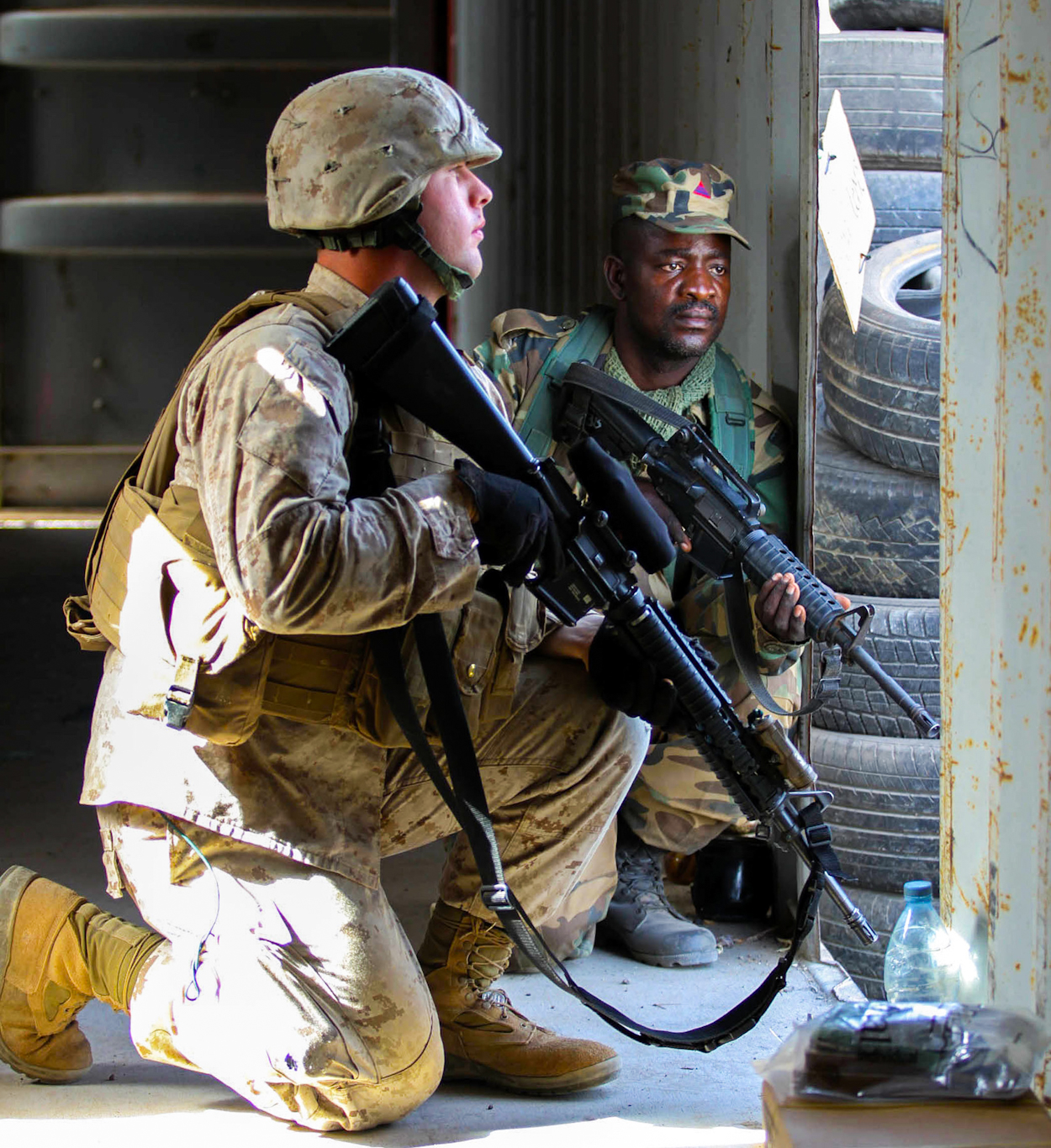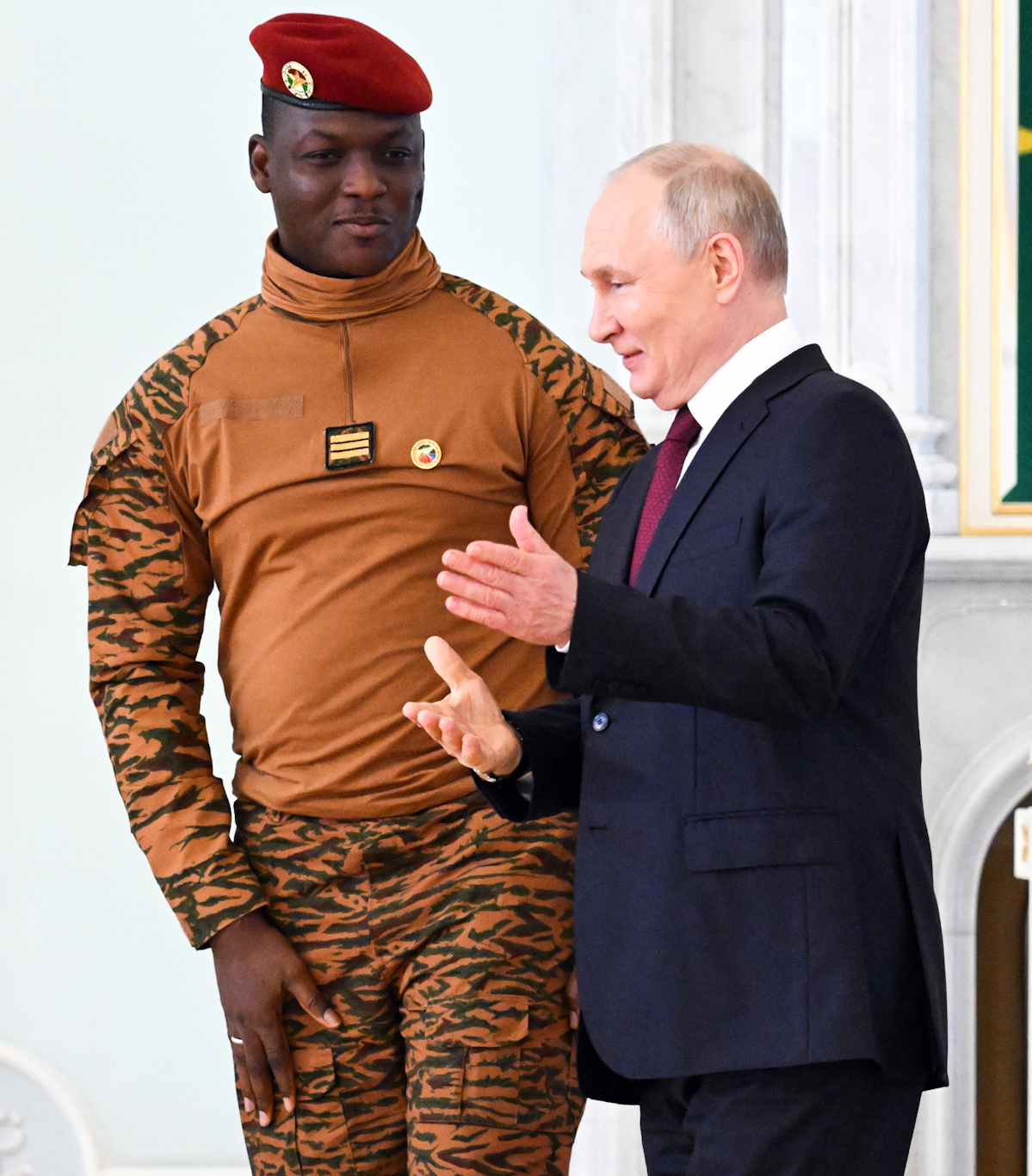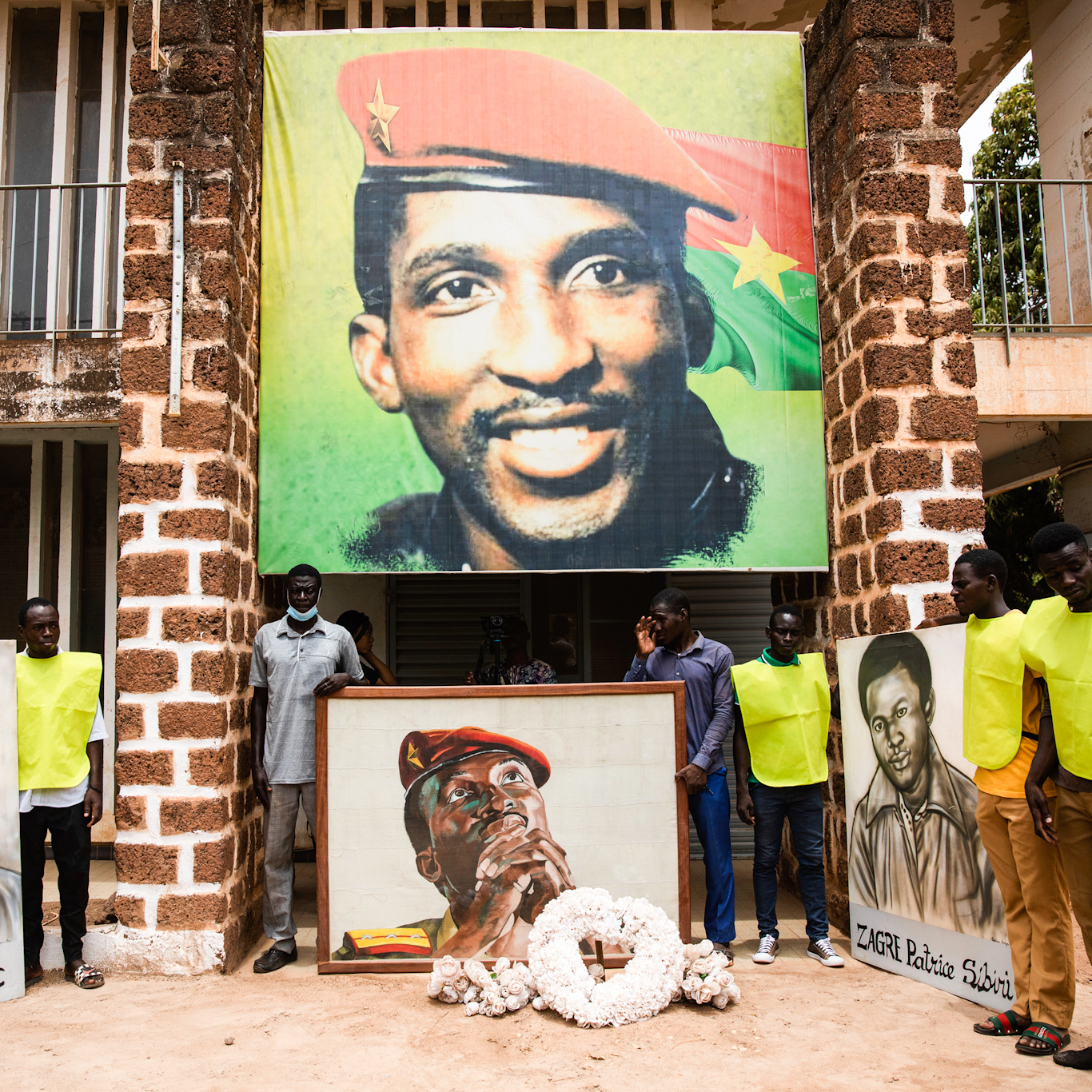Click here for Exit the Cuckoo's Nest's posting standards and aims.
Click here to sign the People's Proclamation and send it to everyone you know.
Source: Red Star
Niger: ECOWAS Weighs Up A Proxy West African War

19-08-2023: On the 28th of July, General Abdourahmane Tchiani declared that the constitution of Niger was suspended and the National Council for the Safeguard of the Homeland (CNSP) had deposed the Western backed President Mohamed Bazoum. He called on “technical and financial partners who are friends of Niger” to understand the situation of the country and continue to provide it with the support necessary to meet coming challenges.[1] In response on July 30, ECOWAS (Economic Community of West African States) threatened a military intervention including the “use of force” if the ousted president and his government were not reinstated by Sunday, August 6.[2] This ultimatum has passed without incident, but ECOWAS could still be used by the Western powers as a proxy force against the CNSP who they suspect will tilt Niger futher towards the Russian Federation. US (United States of America) Secretary of State Antony Blinken warned that US assistance to Niger, amounting to hundreds of millions of dollars, is “in jeopardy” unless the coup against Bazoum was reversed.[3]
ECOWAS
France, the colonial power of Francophone Africa (“Françafrique”) was not impressed. French President Emmanuel Macron exclaimed that the “coup is completely illegitimate and profoundly dangerous for Nigeriens, for Niger and for the whole region.”[4] However, all indications are that the majority of Nigeriens strongly support the actions of the CNSP, and support the drive to end the imposed use of CFA franc currency, which stimulates huge capital outflows, due to a fixed exchange rate, to Europe and mostly France.[5] Nigeriens in the main also demand an end to the exploitation of Niger’s mineral reserves, especially Uranium. According to a survey by the Economist, 78% of Nigeriens supported the CNSP takeover, and 73% want the CNSP leaders to retain power “for an extended period” or “until new elections are held”.[6] At a rally in the capital Niamey on July 30, two days after the takeover, a huge crowd waved both Nigerien and Russian flags, and one placard bore the slogan “Down with France, Long Live Putin!”, referring to the Russian President.[7]
ECOWAS was established in 1975 and has 15 member states, including Niger itself. The others are Benin, Burkina Faso, Cape Verde, The Gambia, Ghana, Guinea, Guinea-Bissau, Ivory Coast, Liberia, Mali, Nigeria, Senegal, Sierra Leone and Togo.[8] In reality, ECOWAS is here being used as a proxy force for NATO, via French and US imperialism. ECOWAS – dominated by Nigeria, has militarily intervened and sent troops into member states six times since 1990, intervening in civil wars, or in the case of Mali in 2013 – against Western backed Al Qaeda terrorists. This was later absorbed into MINUSMA – the UN “stabilisation” mission which was in turn forced out in June this year of Mali by a combination of Malian and Wagner PMC (Private Military Company) forces.[9] At one protest in Niamey, the French Embassy was attacked, while others were demanding that ECOWAS “stay out of our business”.[10] There is also dissent amongst other ECOWAS countries, who are not at all united behind a military interevention into Niger. In addition, The Grayzone reported that Nigerian President and ECOWAS Chair Bola Tinubu spent years laundering money in Chicago for heroin dealers, amongst other corruption scandals.[11] One of the wealthiest men in Nigeria, Tinubu is clearly an asset of the US state and is anything but an opponent of Western imperialism in Africa.
Who is behind the terrorist insurgencies in Africa?
As at January 2022, there were active terrorist insurgencies in Mali, Burkina Faso, Niger, Nigeria, Kenya, Somalia and Mozambique.[12] The West complains endlessly about Wagner’s “interference” in African countries such as Mali, Libya, Sudan, the Central African Republic, Madagascar and Mozambique[13] – for no other reason than it is the Western imperialist powers themselves which have funded and enacted the destabilisation. The Wagner PMC forces are invited in by the African countries to protect themselves the terrorist attacks on civilians and infrastructure. In turn, Africans are well aware that without Wagner they are essentially unarmed against these “Salafist-Jihadis” backed by the deep states of the US and its allies. Hence, placards with “Merci Wagner” (Thank you Wagner) can be seen in Africa.[14] The Salafist cutthroats claim to be motivated by Islam, but in reality they demonstrate such a vast perversion of the Islamic faith that it is unrecognisable.
Exact confirmation is difficult to come by, but it is strongly suspected that Al Shabaab in Somalia and Boko Haram in Nigeria and elsewhere, are covert CIA operations to counter the influence of the People’s Republic of China (PRC), and now Russia, in Africa.[15] In fact, AFRICOM (US “Africa Command”) was established in 2007 by then US President George W Bush, and at that time the US ruling class appeared to be concerned about not ceding control of mineral resources required for advanced electronics to the PRC. In addition, AFRICOM’s operations in Africa were vastly expanded by the Barack Obama Administration. The Democratic Republic of the Congo (DRC) contains more than half of the world’s cobalt and three quarters of world resources of columbite-tantalite (“coltan”), which is a primary component of microchips and printed circuit boards essential for computers.[16] Despite its name, AFRICOM is headquartered in Stuttgart, Germany. This in itself exposes the imperialist designs of Washington and its European allies.
The PRC is the second largest foreign investor in Niger after the former colonial power of France.
Niger became an oil producer for the first time in 2011 on the back of a joint venture with the Nigerien government and the PRC’s state owned Petro China when the Agadem oilfield was opened. In 2019, Petro China also agreed to build a 2000-kilometre pipeline between Agadem and the port city in Benin of Cotonou. This pipeline is the longest in Africa, and was 63% complete in February this year.[17] The PRC also offers somewhat of an alternative for Niger in relation to developing its massive Uranium deposits. In 2007, the PRC state owned China National Nuclear Corporation (CNNC) entered a joint venture with the Nigerien government to develop the Azelik mine in the centre of the country, and gave the Nigerien government a loan of $90.93 million from PRC state owned Eximbank to support development of the project in 2009.[18] As a bureaucratically deformed workers’ state, the PRC is hardly “capitalist”, let alone “imperialist”, and thus its investments in Niger (especially those from its state owned firms) assist Niger’s economic development, as opposed to exploiting it. It does not take much imagination to surmise that PRC built pipelines and other infrastructure are the ideal targets of the Western backed terrorists, aiming to derail even basic cooperation between African states and the Chinese economic powerhouse, let alone joint ventures.
The terrorist insurgencies in Africa, and especially across the Sahel region, cannot be understood without acknowledging NATO’s destruction of Green Libya in 2011. The assassination of longtime leader Muammar Gaddafi and the bombing of the country led, not surprisingly, to years of war. Libya still barely has a state to speak of, and the NATO war infamously resulted in a return of slavery, with open air slave markets.[19] Some of the Western backed fighters against Green Libya filtered into Al Qaeda in the Islamic Mahgreb (AQIM), some went to fight for yet more Western backed regime change in Syria, and some drifted into Niger, Mali and Nigeria. Some joined Al Shabaab in Somalia, where the Biden administration has literally been “bombing the very terrorists it created”.[20] It is little wonder then, that Wagner and Russia (and President Putin) become hugely popular with Africans when they are invited in with their considerable military skills and resources to counter this wanton destruction.
Russia-Africa Summit / BRICS Summit
Moreover, it is hardly a coincidence that several hours after the Russia-Africa Summit concluded in St. Petersburg in Russia, the CNSP took power in Niger. The CNSP takeover in Niger follows similar coups in the last two years in neighbouring Mali and Burkina Faso. These coups, like the coup in Niger, were also popularly supported as they were directed against governments that were seen to be cooperating with the Western backed terrorists. Yet it is Niger which has dramatically raised the stakes for imperialism, given that Niger is neck and neck with Kazakhstan as the largest suppliers of Uranium to the European Union (EU).[21] France, above all, requires a steady supply of Uranium given that around 80% of its power emanates from its nuclear energy system. What is more, until the last ten years or so, Niger had been seen as a reliable ally of the Washington. Today, it is a different story.
For example, when US Deputy Secretary of State and arch war hawk and coup-monger Victoria Nuland visited Niger on the 7th of August, she was refused permission to meet with the ousted former President Bazoum. Also, CNSP central leader General Tchiani did not meet with the US delegation.[22] Even ten years ago, an African leadership refusing to meet with a high-powered US emissary would have been unthinkable. Yet today it is a reality. The perception of many Africans and almost all African leaders now is that Russia is fighting the imperialists in Ukraine, and that Russia will help them fight the imperialists in Africa – either directly or via the Wagner group. Thus, without Russia’s role in combatting ISIS/Al Qaeda in Syria, and its role in blocking NATO armed Nazis on its own borders – it is likely that Mali, Burkina Faso and now Niger would not be emboldened to stand up to the West.
This is not to take anything away from the incredibly brave stands that the African peoples and dissenting African leaders are maintaining in the face of pressure from Washington, London and Paris. Captain Ibrahim Traoré, the interim president of Burkina Faso, gave a speech in which he declared “a slave who cannot assume his own revolt does not deserve to be pitied”, and heralded Russian and African cooperation in defeating the Nazis in the Second World War. He also condemned the West for denouncing Africans who take up arms to defend their homeland as “militias”, when in Europe they are called “patriots”.[23] At 35 years of age, he is the world’s youngest head of state. Traoré also hails the legacy of Major Thomas Sankara, who headed an anti-imperialist and pro-socialist Burkina Faso from 1980 to 1984 and sought closer ties with the then Union of Soviet Socialist Republics (USSR). Sankara is often referred to as the “Che Guevara of Africa”.[24]
The Second Russia-Africa Summit was attended by 49 out of the 54 African nations,[25] which is remarkable considering that Russia is currently waging a defensive war against NATO in Ukraine. Flowing on from this will be the 15th Annual BRICS (Brazil, Russia, India, China, South Africa) Summit to take place in Johannesburg on August 22-24 with a themed focus on Africa – “BRICS and Africa: Partnership for Mutually Accelerated Growth, Sustainable Development and Inclusive Multilateralism”.[26] More than 40 nations are in the queue to join BRICS,[27] as they can see the writing on the wall. That is, the non-imperialist Eurasian bloc is rising, and the imperialist Western bloc is in a state of rapid decline. In fact, the non-imperialist BRICS bloc is not only acting as a counterweight to the West but is offering an alternative to the imperialist G7 (US, UK, France, Germany, Italy, Canada and Japan)[28] backed by NATO. Many of the G7 nations are in, or will enter, a recession largely as a result of their backfiring sanctions on Russia in support of a Nazified Ukraine.
Towards liberation
It is in the vital interest of workers internationally to offer military support to the CNSP in Niger, and to the governments which have pledged to oppose, if not assist, resistance to a proxy imperialist ECOWAS intervention, e.g., Mali, Burkina Faso, Algeria and Chad. Further, working people should defend the right of African nations to call on any security assistance it can secure from any non-imperialist nation, up to and including Wagner PMC. In addition, workers should stand for total imperialist non-interference in any form of economic cooperation African countries enter into with the non-imperialist BRICS countries, whether that be the Russian Federation or the PRC. This especially includes infrastructure projects which are part of Beijing’s flagship Belt and Road Initiative (BRI).
At the same time, the BRICS bloc does not offer workers in Africa or internationally political solutions, at least from the governments of the BRICS nations and those aspiring to its membership. While “multipolarity” may temporarily offset US led domination, it will not end the constant threat of imperialist meddling and/or outright war. Global capitalism is in such a dire state that its leading citadels are willing to risk World War III to preserve its fast fading “glory”. For workers in France, the struggles waged by Mali, Burkina Faso, Niger and Francophone Africa need to be linked directly to the efforts at home not only to end the reign of “the banker President” Macron, but the overthrow of the rule of French finance capital. The key task for workers in France and Africa and internationally is to forge linked Leninist vanguard parties welded to Trotsky’s theory of Permanent Revolution. Only socialism – a network of collectively owned and planned economies – has the power to supersede and depose an imperialism which is rotting alive.
WORKERS LEAGUE




